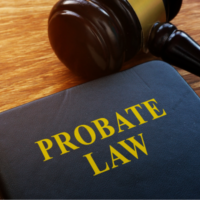How to Avoid Ancillary Probate in Florida

When an individual passes away, their assets usually undergo probate in their home state. But what if that individual owned property in Florida without being a resident there? This scenario is common for those who purchase homes, condos, or other properties in Florida, either as a winter retreat or an investment.
While the decedent’s primary assets will be probated in their home state, any Florida property necessitates an ancillary (or secondary) probate process.
Understanding Ancillary Probate in Florida
Ancillary probate can significantly increase the costs associated with settling an estate. As stipulated by Florida Probate Rule 5.030, the decedent’s representative needs to engage an attorney licensed in Florida. Given the potential legal costs, heirs will likely receive a reduced inheritance. Due to these added expenses and complications, non-residents owning property in Florida often seek ways to sidestep ancillary probate.
Strategies to Avoid Ancillary Probate in Florida
For those keen to bypass ancillary probate in Florida, the solution lies in adjusting the property’s ownership structure during their lifetime. Here are several strategies to consider:
1. Trust Ownership: Transferring property to a Revocable Living Trust is a favored approach to elude probate. The individual retains control, but the Trust becomes the official owner. Property titled under the Trust doesn’t need ancillary probate.
2. Enhanced Life Estate Deed: Florida permits the use of this special deed to bequeath property directly to a chosen beneficiary, bypassing probate. The owner maintains control over the property until their passing, at which point it transitions to the beneficiary.
3. Joint Ownership: Property co-owned with rights of survivorship avoids probate. If one co-owner dies, ownership naturally transfers to the surviving owner(s). This arrangement is prevalent among spouses.
4. Property as a Business Entity: For non-residents who own Florida-based businesses, like LLCs, transferring property ownership to the business changes its status to corporate property, potentially circumventing Florida probate. It’s crucial to note that this property might still be subject to probate in the owner’s home state depending on how the business is owned.
5. Beneficiary Accounts: Another lesser-known method involves setting up beneficiary accounts. Upon the owner’s death, assets within these accounts move directly to the named beneficiaries, sidestepping the probate estate. These accounts can encompass life insurance policies, bank accounts, and retirement funds, but not real property.
Conclusion
Owning property in Florida while residing elsewhere presents unique and practical challenges for your heirs upon one’s passing. This article highlights several strategies to avoid Florida’s ancillary probate process. Due to the complexities involved, consulting with a seasoned Florida probate and estate planning attorney is highly advisable.

